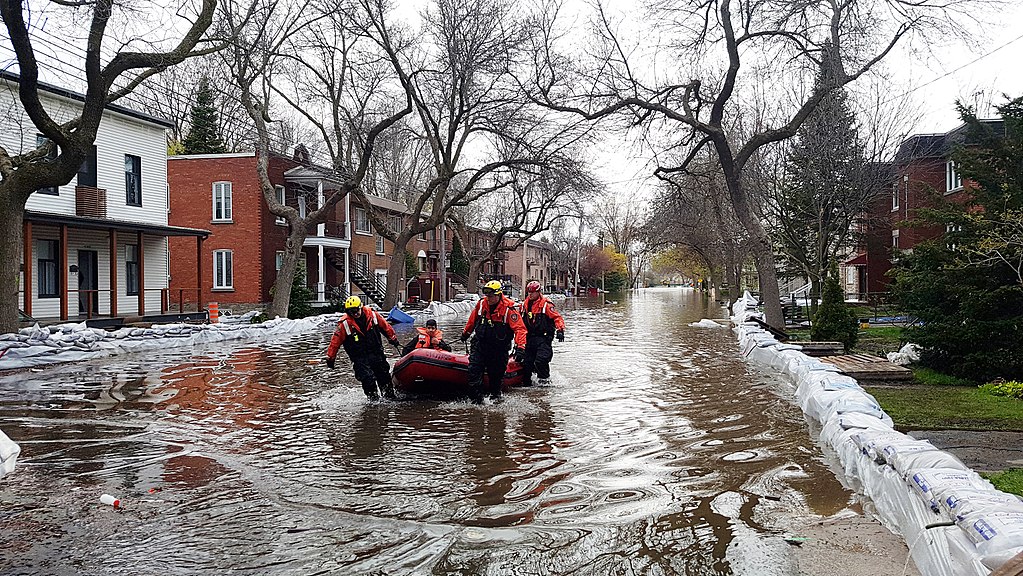
A new study, co-authored by Dr Kamiar Mohaddes, suggests that 7% of global GDP will disappear by 2100 as a result of business-as-usual carbon emissions.
Whether cold snaps or heat waves, droughts, floods or natural disasters, all deviations of climate conditions from their historical norms have adverse economic effects.
Dr Kamiar Mohaddes
Prevailing economic research anticipates the burden of climate change falling on hot or poor nations. Some predict that cooler or wealthier economies will be unaffected or even see benefits from higher temperatures.
However, a new study co-authored by Gates Cambridge scholar Dr Kamiar Mohaddes [2005] suggests that virtually all countries – whether rich or poor, hot or cold – will suffer economically by 2100 if the current trajectory of carbon emissions is maintained.
In fact, the research published on Monday by the National Bureau of Economic Research suggests that – on average – richer, colder countries would lose as much income to climate change as poorer, hotter nations.
Under a “business as usual” emissions scenario, average global temperatures are projected to rise over four degrees Celsius by the end of the century. This would cause the United States to lose 10.5% of its GDP by 2100 – a substantial economic hit, say researchers.
Canada, which some claim will benefit economically from temperature increase, would lose over 13% of its income by 2100. The research shows that keeping to the Paris Agreement limits the losses of both North American nations to under 2% of GDP.
Researchers say that 7% of global GDP is likely to vanish by the end of the century unless “action is taken”. Japan, India and New Zealand lose 10% of their income. Switzerland is likely to have an economy that is 12% smaller by 2100. Russia would be shorn of 9% of its GDP, with the UK down by 4%.
The team behind the study argue that it isn’t just about the number on the thermometer, but the deviation of temperature from its “historical norm” – the climate conditions to which countries are accustomed – that determines the size of income loss.
“Whether cold snaps or heat waves, droughts, floods or natural disasters, all deviations of climate conditions from their historical norms have adverse economic effects,” said Kamiar, who is based at the University of Cambridge's Faculty of Economics.
“Without mitigation and adaptation policies, many countries are likely to experience sustained temperature increases relative to historical norms and suffer major income losses as a result. This holds for both rich and poor countries as well as hot and cold regions.”
“Canada is warming up twice as fast as rest of the world. There are risks to its physical infrastructure, coastal and northern communities, human health and wellness, ecosystems and fisheries – all of which has a cost,” he said.
“The UK recently had its hottest day on record. Train tracks buckled, roads melted, and thousands were stranded because it was out of the norm. Such events take an economic toll, and will only become more frequent and severe without policies to address the threats of climate change.”
Kamiar worked on the study with Cambridge PhD candidate Ryan Ng, as well as colleagues from the University of Southern California, USA, Johns Hopkins University, USA, National Tsing Hua University, Taiwan, and the International Monetary Fund.
Using data from 174 countries dating back to 1960, the research team estimated the link between above-the-norm temperatures and income levels. They then modelled the income effects under a continuation of business-as-usual emissions as well as a scenario in which the world “gets its act together” and holds to the Paris Agreement.
Researchers acknowledge that economies will adapt to changing climates, but argue that their modelling work shows adaptation alone will not be enough.
The scientific consensus suggests that adapting to climate change takes an average of 30 years, as everything from infrastructure to cultural practice slowly adjusts. But even if this adjustment speeds up to just 20 years, the United States still loses almost 7% of its economy, with over 4% of global GDP gone by the century’s end.
The team also undertook a more focused approach to the U.S. to gauge the strength of their results. “Cross-country studies are important for the big picture, but averaging data at national levels leads to loss of information in geographically-diverse nations, such as Brazil, China or the United States,” said Kamiar.
“By concentrating on the US, we were able to compare whether economic activity in hot or wet areas responds to temperature fluctuations around historical norms in the same way as that in cold or dry areas within a single large nation.”
They looked at ten sectors ranging from manufacturing and services to retail and wholesale trade across 48 US states, and found each sector in every state suffered economically from at least one aspect of climate change – whether heat, flood, drought or freeze.
When scaled up, these are the effects that will create economic losses at the national and global levels, even in advanced and allegedly resilient economies, say the researchers.
“The economics of climate change stretch far beyond the impact on growing crops,” said Kamiar. “Heavy rainfall prevents mountain access for mining and affects commodity prices. Cold snaps raise heating bills and high street spending drops. Heatwaves cause transport networks to shut down. All these things add up.”
“The idea that rich, temperate nations are economically immune to climate change, or could even double and triple their wealth as a result, just seems implausible.”
Kamiar is from Sweden, which some predict will benefit from higher temperatures. “But what about the winter sports depended upon by the Swedish tourism industry?” he asked. “If advanced nations want to avoid major economic damage in the coming decades, the Paris Agreement is a good start.”
*Picture credit: Quebec floods, Cartierville neighborhood of Montreal, 8 May 2017. Author: Exile on Ontario St from Montreal, Canada courtesy of Wiki media commons.

Kamiar Mohaddes
- Alumni
- Sweden
- 2005 PhD Economics
- St John's College
Kamiar Mohaddes is an expert in the macroeconomics of climate change and sustainability at Cambridge University, where he is the Co-Director of the climaTRACES Lab, a new interdisciplinary research initiative at the University of Cambridge focusing on climate, nature, and sustainability. He is also the Deputy Director of the Cambridge Executive MBA programme and Fellow in Economics at King’s College, Cambridge, where he co-founded and directs the King’s Entrepreneurship Lab.
In addition to climate change and sustainability, Kamiar's research covers energy economics, economics of the Middle East, and applied macroeconomics more broadly. He is among the top 1% authors globally in IDEAS/RePEc (based on last 10 years of publications). His articles have been published in a number of edited volumes (Cambridge University Press, Oxford University Press, and Routledge) as well as in leading journals, including the Journal of Applied Econometrics, Journal of International Economics, Management Science, and the Review of Economics and Statistics. His research has also been covered in major international news outlets including the BBC, Bloomberg, The Economist, the Financial Times, the New York Times, Reuters, The Wall Street Journal, and the Washington Post. Kamiar’s work has been cited extensively by policymakers, including by more than 25 members of the United States Congress, the Congressional Budget Office, and the White House.
Kamiar has worked extensively on issues related to climate change and sustainability with both the public (including the United Nations, World Bank, Asian Development Bank, IDB) and the private sector (BCG, BNP Paribas, KPMG and many others). He is a regular visiting scholar at the International Monetary Fund and has previously served as a Departmental Special Advisor at the Bank of Canada. He has worked closely with colleagues at these institutions to, for instance, develop tools to help examine and disentangle the size and speed of the transmission of different global, regional, and national macroeconomic shocks.
Kamiar obtained his PhD in economics from Cambridge as a Gates Scholar.
Links
https://www.jbs.cam.ac.uk/people/kamiar-mohaddes
https://www.mohaddes.org
https://www.linkedin.com/in/kamiarmohaddes












